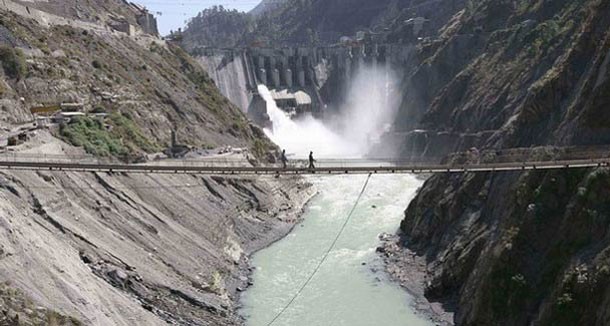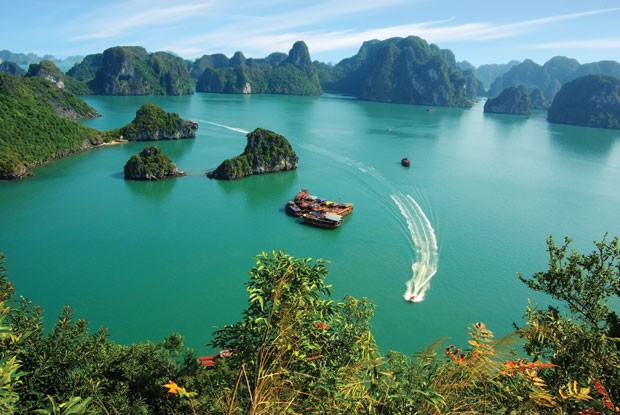IFLR’s guide to Asian frontier markets
Post on: 8 Май, 2015 No Comment

Email a friend
- Your name: Please enter your name
- Your email: Please enter your email address Please enter a valid email
Please enter a maximum of 5 recipients. Use ; to separate more than one email address.
Investors agree that frontier markets are risky but rewarding havens from the rest of the global economy. They’re thought to be a hedge against poorly-performing developed economies because they’re largely independent– although many are closely connected to China. Domestically, many offer enormous opportunities in the natural resources and consumer sectors.
Investors must contend with a variety of hurdles, ranging from constantly-changing FDI regulations to US and EU sanctions. But they also offer significant benefits, such as higher yields, faster growth and less regulation.
IFLR ’s Asian frontier markets coverage analyses legal developments and risks in developing jurisdictions as well as innovative deal structures that successfully navigated local regulatory regimes.
Commonwealth of Independent States
ADB – Kazakhstan co-financing accord highlights Asia shift ADB and Kazakhstan’s co-financing agreement means that the country is now looking to deepen its ties with Asia.
Local banks’ time to shine US sanctions in Russia will give local banks the opportunity to start arranging and underwriting their own syndications.
BTA Bank restructuring The restructuring of Kazakhstan’s BTA Bank was one of the first successful creditor bail-ins, but was challenging because Kazakh law doesn’t recognise subordination.
CIS region sukuk first analysed The Development Bank of Kazakhstan’s debut sukuk was an important development for the country, which is eager to develop as an Islamic finance base in Central Asia.
India/Azerbaijan first reveals India’s aggressive oil strategy Indian company ONGC Videsh’s acquisition of a stake in a Caspian oil field revealed Indian companies’ outbound ambitions for resources deals.
How BTA restructured without state help Kazakhstan’s BTA Bank restructured via a revolving committed trade finance facility, emphasising the importance of trade finance to the economy.
Financing tests Armenian security laws The redevelopment of Armenia’s Zvartnots Airport required amending the security package under Armenian law following the addition of ADB to the funding structure halfway through the deal.
Chinese oil investment tackles Kazakh currency fears A joint venture between a Kazakh and Chinese company to purchase a Kazakhstan Stock Exchange (Kase) listed company boosted Chinese confidence in the jurisdiction.
Belarus bond pushes disclosure standards Belarus’s debut sovereign bond was expected to raise corporate disclosure standards in the jurisdiction.
Kazakhstan eyes bank lending alternative Reforms to Kazakh bank regulations made its projects market more appealing for private equity investors.
Why Mongolia’s investment law amendments disappoint Amendments to the Strategic Entities Foreign Investment Law were not as significant as the market hoped. Onerous requirements remained on the books.
Mongolia sovereign bond first explained Mongolia’s debut sovereign bond, issued under Rule 144A and Regulation S, priced well despite political difficulties.
MSE: a frontier exchange’s road to success An interview with Saruul Ganbaatar, the Mongolia Stock Exchange (MSE)’s deputy chief executive officer and its chief regulatory officer, about the new Securities Law and the MSE’s future.
Mongolia Stock Exchange: new securities law explained Mongolia’s new securities law introduced concepts such as depositary receipts and custodian banks in preparation for Mongolian companies looking to dual-list on the MSE and an international exchange.
Investors hope for clarity on Mongolia foreign investment law Mongolia’s government considered amendments to the Sefil, which had impacted foreign investment in the resources-driven jurisdiction.
:Legal impasse threatens Mongolia FDI Strict requirements in both Mongolia’s Minerals Law and the Sefil deterred FDI into the jurisdiction as investors remained concerned about legal risk.
Mongolia’s draft securities law explained Mongolia’s securities law tried to provide an encyclopedic overview of all possible financial instruments.
Mongolia’s new foreign investment law explained Mongolia passed a restrictive new foreign investment law ahead of its elections. Investors hoped the law would be repealed or amended following the announcement of the election’s results.
Mongolia Salkhit financing set foreign security precedent Salkhit was Mongolia’s first renewable energy power project, and provided an important template for foreigners negotiating restrictions on taking security in the country.
Myanmar must forge its own path While creating its rules and regulations for its capital markets in conjunction with its international partners, Myanmar must take its own market’s requirements into account.
What’s next for Myanmar sanctions The US Office of Foreign Assets Control (OFAC) updated its sanctions programme for Myanmar, but restrictions remain onerous for US companies looking to do business in the country.
What’s next for Myanmar’s telco sector Agreements signed to develop telecommunications towers in Myanmar were an important step in developing the country’s infrastructure.
Myanmar’s capital markets: what to expect Myanmar must upgrade its over-the-counter equities market. But its regulations should not follow those of developed markets; they must be tailored for the jurisdiction’s needs.
Myanmar’s central bank law explained Myanmar’s Central Bank Law established the central bank’s independence.
How to navigate Myanmar’s O&G auction risks Myanmar’s highly-anticipated oil and gas auction required international companies to form JVs with local partners to bid on onshore blocks, adding significant risk.
What will kick-start Myanmar project finance. The legal framework for taking security must be established before project finance will take off in Myanmar.
Myanmar investment: US and EU reporting requirements explained Myanmar represents an exciting opportunity, but US reporting requirements create hurdles for US companies looking to do business there.
Myanmar’s long-awaited foreign investment law analysed Foreign investors were surprised by requirements under Myanmar’s foreign investment law. They were perceived as more FDI-friendly than other regimes in the region.
Myanmar to redraft Special Economic Zone Law The country’s government will overhaul its existing Special Economic Zone (SEZ) law to make it more attractive to foreign investors.
Australia to help Myanmar build mining regulatory regime The government could work with Australian authorities to establish a mining regulatory framework that will mirror the Australian system.
Vingroup high-yield bond sets SE Asia PE precedent Real estate developer Vingroup’s high yield bond was a rare offering out of Vietnam. Its covenant package was structured around Warburg Pincus’ investment into its retail subsidiary.
First Asian restructure under UK SOA explained The restructuring of state-owned shipbuilding company Vinashin was the first Asian restructuring completed via a UK scheme of arrangement.
Why Vietnam’s asset management company is not a silver bullet Vietnam’s creation of an asset management company to buy its banks’ non-performing loans does not solve their structural issues

Vietnam property deal highlights new Asian PE model EXS Capital’s investment into real estate developer Son Kim Land highlighted the benefits of private equity raising funds on a deal-by-deal basis.
How Vietnam refinery first overcame currency risk The financing of Nghi Son refinery was the first project of its kind in Vietnam to involve foreign bank, and it was structured to take the dong’s volatility into account.
Why Vietnam’s bank FDI proposal falls short Vietnam proposed increasing FDI restrictions in the banking sector, but its proposal imposes high entry barriers and prohibits more than 20% ownership by a foreign bank.
KKR – Masan signals PE appetite for Vietnam KKR’s $200 million investment into Masan Consumer signals private equity’s interest in Vietnam’s fast-moving consumer goods sector.
Vietnam’s PPP framework: what needs to change Public-private partnerships haven’t taken off in Vietnam yet because of a nascent legal structure. Build-operate-and-transfer (BOT) structures remain popular.
First Vietnam bank bond issue explained Vietinbank became the first Vietnamese bank and state-owned company to tap the international capital markets. The deal required working closely with the State Bank of Vietnam to approve details of the deal.
Why Vietnam bank merger could spark copycat deals The merger of two Vietnamese banks was the first between listed banks in Vietnam, and was part of the regulator’s attempt to strengthen and consolidate the banking sector.
Vietnamese IPP first paves the way for future deals The financing of Muong Dong II coal-fired power plants clarified legal ambiguities, namely whether a BOT company could grant security over land.
Bhutan
IFC Bhutan investment opens new frontier IFC’s investment into a Bhutanese bank was the largest foreign direct investment into Bhutan and signals growing interest in the fast-growing market
Cambodia
Why PE is expanding Cambodia’s telecoms Attracted by recent attention to Myanmar, private equity investors looked to Cambodia’s telecommunications sector as an area for potential growth. But lawyers warned that the sector was highly regulated.
KRX Q&A: helping emerging markets exchanges An interview with KRX’s executive director of market strategy on the exchange’s role in developing stock markets in Cambodia and Laos.
Cambodia’s new exchange will fail without listing incentives The Cambodia Securities Exchange is an exciting development for the jurisdiction, but listing incentives are needed to ensure companies are willing to subject themselves to listing requirements.
Laos hydro project creates new frontier financing model Local banks fully financed a cross-border Laos hydropower project, but included a structural innovation that permitted multilaterals to join after closing
KRX Q&A: helping emerging markets exchanges An interview with KRX’s executive director of market strategy on the exchange’s role in developing stock markets in Cambodia and Laos.
Laos rights issue first analysed Laos’ nascent securities changes had its first rights issuance, but only two companies are listed and the market remains mostly illiquid.
Maldives
Maldives to modernize commercial laws The Maldives is to modernize its commercial laws in a bid to attract sophisticated foreign investment to its tourism sector
Pakistan
Pakistan bond opened new frontier finance solution Pakistan’s sovereign bond is expected to reopen the Pakistani capital markets for local corporates and banks
Patrind hydropower financing signals Pakistan’s projects future The Patrind hydropower project spanned three provinces in Pakistan, demonstrating how to complete deals in the country’s most challenging regions
ADB’s first shariah-compliant project financing explained The Asian Development Bank participated in its first shariah-compliant project financing for two wind farms in Pakistan’s Sindh province
Papua New Guinea
Papua New Guinea: outlook improving? Papua New Guinea is one of the Pacific’s fastest growing economies, but its legal regime and political situation are difficult to navigate














